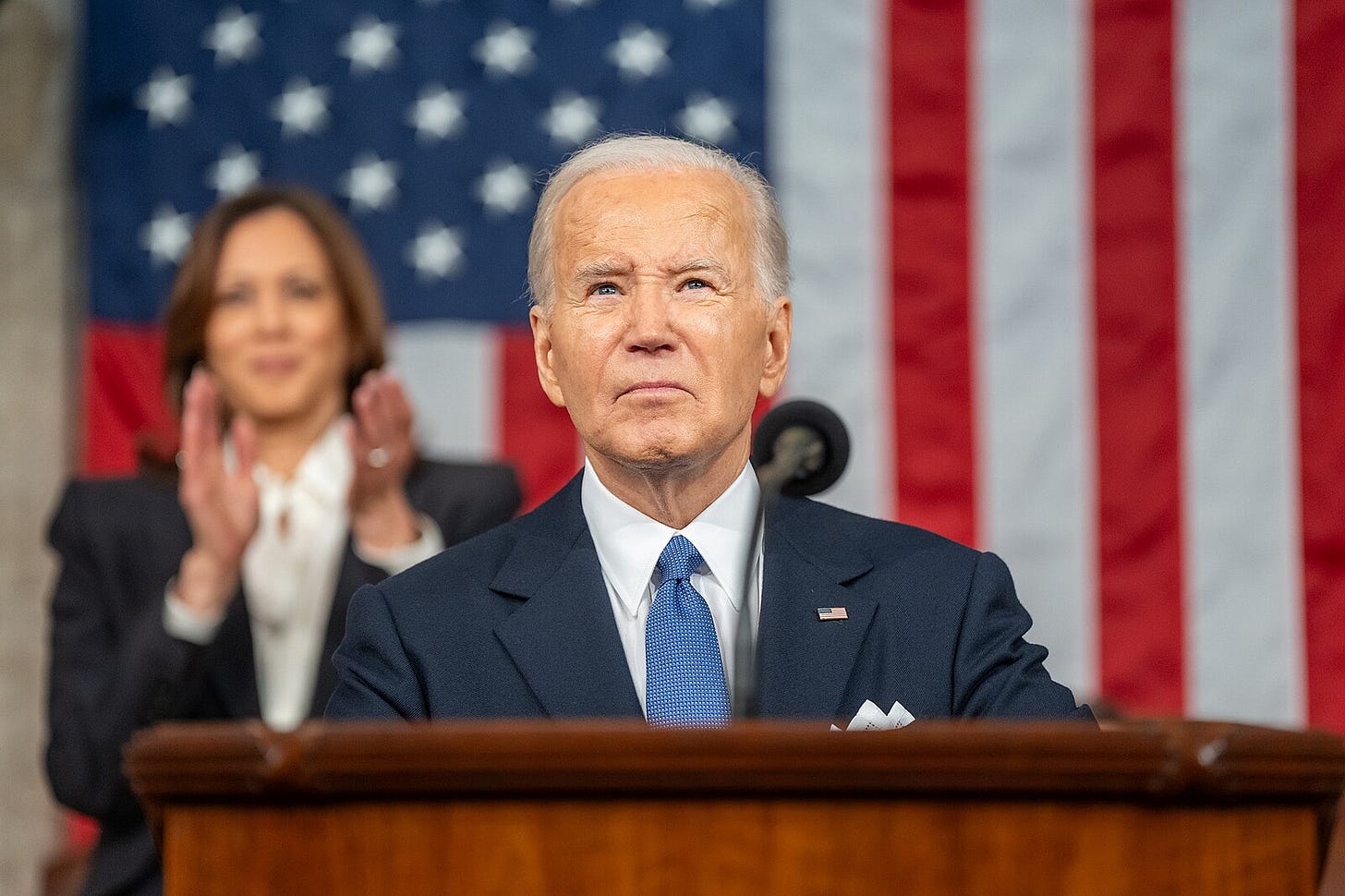The Media's Original Sin: How Biden's Decline Became Journalism's Greatest Failure

Jake Tapper and Alex Thompson's book "Original Sin" is migrating toward the Bargain Bin, but it's already ripped open a wound festering in American journalism for years. The book details President Joe Biden's cognitive decline through about 200 interviews with Democratic insiders—and raises a question that should haunt every newsroom: How could we have missed this?
Except we didn't miss it. In CNN’s own surveying/polling in August 2023 via SSRS Research, 74% of Americans said that the statement, “stamina and sharpness to serve effectively as president,” does not apply to Biden.
This book gaslights the American public about being gaslighted. And that will forever be the real story here.
What Everyone Could See
Let's start with what was plainly visible: Biden's odd and uncomfortable gait, vacuous stares, increasing incoherence when tired. The stumbles. The falls. I was at the Air Force Academy in May 2023 when Biden face-planted over sandbags behind the lectern. It was awful.
According to Tapper and Thompson, staff allegedly discussed preparing a wheelchair for a potential second term. And let's not forget when Biden told the world he had cancer – in 2022. The legacy media had so normalized Biden's incoherent statements that this was never meaningfully probed. In polling by CNN via SSRS in November 2019, the sharpness/stamina question was asked in exactly the same words, and 51% of Americans said he did not meet that criteria then.
But the real story is that nearly nothing else was hidden. None of the falls or gaffes or garble. It was all there, even during the 2020 campaign—broadcast live to millions of Americans who saw it with their own eyes.
The Architecture of Denial
What Tapper and Thompson attempt is revealing the machinations behind the curtain. They describe a tightly controlled "politburo" of advisors who maintained Biden's public image by suppressing dissent and limiting access.
But they themselves were behind the curtain, with colleagues who had access and insights. There's no possible way their telling of this story is genuine. Not even the staunchest ideologue could be so profoundly ostrich-headed and maintain a job in journalism.
The only time I've seen anything this wildly overlooked that was so evident was in the 1990s, during baseball's steroid era. But here's where it gets uncomfortable: Even Tapper and Thompson—journalists at major outlets—are implicated in what they call "media complicity." That's too easy an out.
If the book were serious, it would have interviewed White House beat reporters and invested time with Republican House Speaker Mike Johnson, who related a story about arguing with Biden over whether the president had signed a bill banning liquid natural gas exports.
Talking to real American voters throughout 2024—not just coastal enclave inhabitants—paved the way to Trump winning. It was an all-out rejection of what Americans were being told from news they grew up trusting.
The Question That Won't Go Away
Let's get to the central question: Is it reasonably possible that legacy media "missed" Biden's cognitive impairment? That trained observers with administration sources simply didn't notice what millions watched on their screens?
No. It's not reasonably possible. It’s just not.
The evidence was public, repeated, and observable. These weren't isolated incidents. The media didn't miss it. The legacy media – as a collective – chose not to report it as a crisis.
They ignored the Camping World-sized red flags Biden displayed, from his belligerent interview with Charlamagne Tha God to asking CBS's Errol Barnett whether he was a junkie when asked about cognitive issues, to saying poor kids were just as bright as white kids—all during his 2020 campaign. And while each of those interviews exposed an old-school racism, they were arguably more awful because they were so wildly out of bounds contextually. Seriously, who says things like this and runs for – and wins – a presidential election?
How Journalism Failed
What happened was a collective editorial decision to redefine "fitness." As long as Biden showed up, read the prompter, and avoided major scandal, he was considered operational. Cognitive clarity was deprioritized in favor of policy outputs. The American news media allowed that, unchecked.
Newsrooms made deliberate choices. Many reporters depend on access—their continued presence in briefing rooms relies on not alienating gatekeepers. Raising concerns about Biden's capacity was coded as fringe, conspiratorial, or cruel, even when grounded in fact.
The packaging of the presidency by spokeswomen Jen Psaki and Karine Jean-Pierre was so tightly controlled it created plausible deniability. Even seasoned journalists were shown theater, not truth—and many played along.
The Messenger Problem
Here's what makes this even more damning: When some outlets—labeled "conservative" or "alternative"—called out Biden's impairment, they weren't taken seriously. Why?
Because the mainstream ecosystem had pre-discredited those outlets based on who was making claims, not their content.
Most national newsrooms lean ideologically uniform. They dismiss information from outside their bubble. When alternative outlets flagged Biden's decline, the message was filtered through contempt for the messenger rather than evaluated on merit.
Biden's stumbles were reframed as "deepfakes" or "right-wing smears"—not because they weren't real, but because acknowledging them would require legitimizing critics whom elite institutions distrust. And have been telling their readers to distrust as well.
The Reckoning
This book exposed something broken at American journalism's heart. Conservative and alternative media weren't taken seriously not because they were wrong, but because the institutional press decides in advance they can’t be right.
This was not a miss. It was a collective omission—one that should haunt every newsroom that failed to act on what millions could see.
When we stop trusting our own eyes, when we filter truth through tribal loyalty instead of professional skepticism, when we decide in advance which messengers we'll believe and then blindly follow—we stop being journalists.
We become something else entirely. It then becomes propagandizers masquerading as independent journalist. And that is the true original sin.
Chris Krug is publisher of The Center Square and CEO of the Franklin News Foundation.

